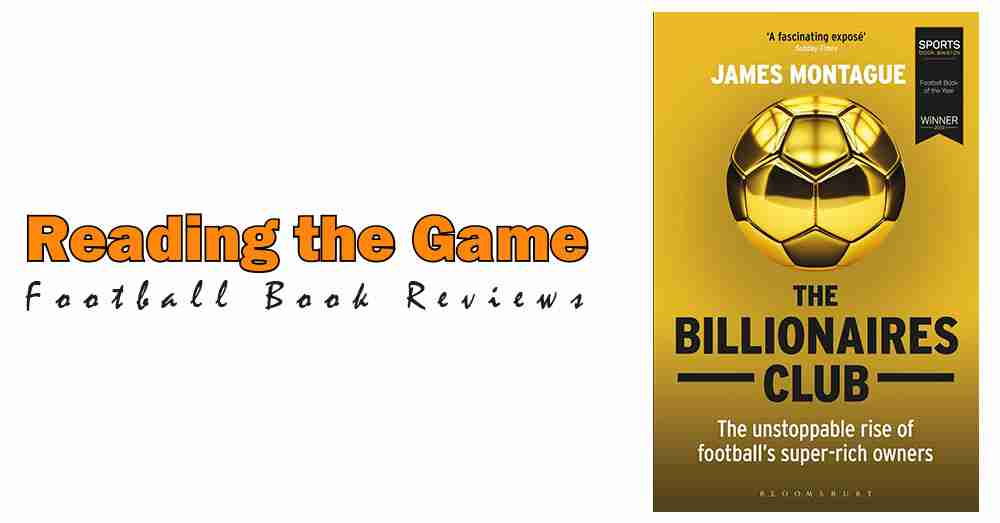When the Super League proposals came to light recently, a lot of the information seemed familiar. Then, I remembered why and re-read a book that I’d previously enjoyed. The Billionaires Club by James Montague examines the changes in football club ownership and the motivations driving the ultra-wealthy individuals and organisations who buy football clubs.
The Billionaires Club is a fascinating book, partly because Montague travels the world to understand his subjects. From travelling to St Louis for a Super Bowl held in a stadium which had lost it’s team to sneaking into (and back out of) a labour camp for migrant workers in Qatar, the author goes to great lengths to talk to those affected most by the actions of those who involve themselves in the game for their own reasons.
Montague also establishes that, in many cases, the motivations vary sharply depend of where your club’s ultra-rich owner is from. This book is divided into four parts, each covering a different geographical region. We learn that, in Eastern Europe, club owners often invest in football – and other things – as a sort of personal insurance. Life and wealth can be fragile in certain countries, but owning a club can provide the kind of public profile which might dissuade others from trying to impinge on either.
We learn a great deal about some of the Americans who have purchased Premier League clubs. At the risk of stating the obvious, their primary motive is making a profit but it would be fair to say that few chase a profit quite as hard as Stan Kronke. The portrait of Arsenal’s owner painted by the stories told by Montague is spectacularly unflattering; whether in St Louis or in Texas, where he evicted low-income residents of his half-million acre ranch, Kronke’s determination to maximise his assets has left misery and even death in its wake.
The differing imperatives driving Asian and Middle-Eastern investment into European football are explored in detail. The interviews with migrant workers from all around the world who have headed to the Middle East to build stadia or infrastructure for the 2022 World Cup are harrowing. Montague doesn’t stop there; he also explores the agencies in Bangladesh who supply the workers and talks to the Chairman of the World Cup organisers, the Supreme Committee for Delivery & Legacy.
The Billionaires Club is a fascinating, but not uplifting book. Montague sets out how clubs around Europe have become key assets for countries seeking to wield a greater amount of ‘soft power’ than they previously held, or for super-rich individuals with their own motives – some personal, some financial. The European Super League is foretold and questions are raised about all sorts of important topics, including fan ownership of professional clubs.
On both readings, I’ve taken a lot from The Billionaires Club. Followers of top-tier clubs who have any sort of interest in how their teams are owned and financed should read it, as should anyone interested in this aspect of the game.
Don’t just take my word for this book’s quality; The Billionaires Club won Football Book of the Year at the 2018 Sports Book Awards. (A previous book by James Montague, the fantastic Thirty-One Nil won the same prize in 2015.)
As ever, I’m going to share a link to Stanchion’s website where you can get your own copy of The Billionaires Club. I’m not on commission, nor have I been asked to; it’s just that I’m a Stanchion customer who wants to support an independent football bookshop.
Having now reviewed three books in a row that concentrate on the administration and (mis)management of my favourite sport, I can promise that my next read will be about happier facets of football! I’m not saying what it is yet, though…
